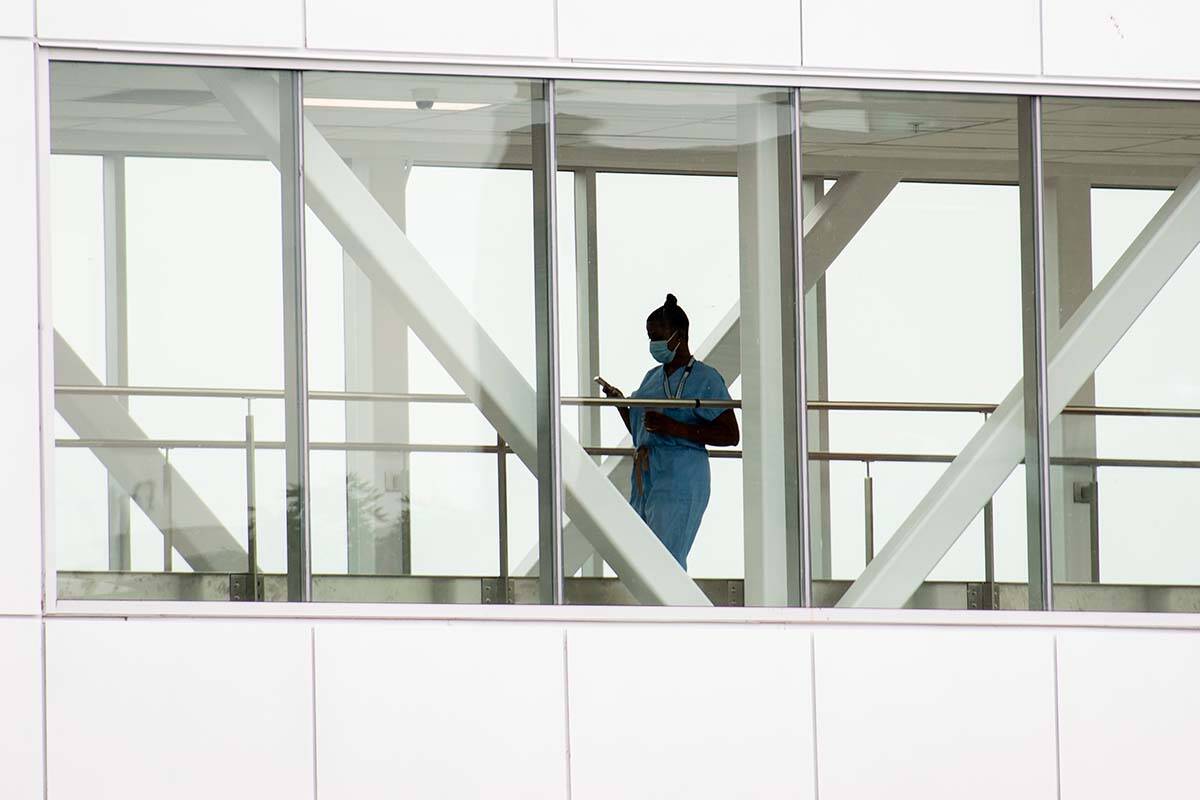B.C.’s human rights commissioner says the province’s decision to end mask mandates in health-care settings is putting vulnerable people at a greater risk in the places they should feel most safe.
Provincial Health Officer Dr. Bonnie Henry announced the end to compulsory masking in hospitals, clinics and long-term care homes last Thursday (April 6), along with vaccination and rapid antigen testing requirements for visitors.
Human Rights Commissioner Kasari Govender says the move is a violation of the rights of vulnerable people to equal participation in their communities.
“Masks minimally impair those who wear them, but the impacts of COVID-19 on vulnerable people are well-known and they vary from the mild to the deadly,” she said in a statement Wednesday (April 12).
She says she’s worked hard over the last three years to convince the province to approach their response to the pandemic with a human rights lens, taking into account the impact of their decisions on marginalized populations. Removing universal masking in health-care settings does the opposite, Govender says.
She notes that while the risk of COVID-19 has been lowered for the general population, it remains for some.
“Marginalized people, including those seniors and medically vulnerable people who are fully vaccinated, continue to die and face significant illness.”
Masking, she says, needs to be seen as a protection rather than a restriction.
“…the minor inconvenience masks cause for some must be balanced against the more profound harms to the rights of marginalized people to participate in society and, in this case, to access healthcare.”
She says she believes B.C.’s public health officials are trying to do their best, but that they need to take into better account the impact this particular decision will have.
“This week’s removal of masking directives in health care settings does not uphold a human rights-centered approach to public health,” she said.
Minister of Health Adrian Dix didn’t directly address the concern while speaking at a separate media availability Wednesday, but said he is proud of the decisions they’ve made throughout the pandemic.
He also pointed to the fact that 100 per cent of provincial health workers are vaccinated.
“We were the only jurisdiction in Canada to do this and this action, which continues and which will continue, is an action…that provides protection in our health care system. “
B.C. has repeatedly adapted to the nature of the pandemic, he added.
“(This) is precisely what she (Henry) has done in this case,” he said.
At the time of the announcement last week, Henry told British Columbians the mask mandate may come and go depending on the severity of future respiratory diseases.
-With files from Wolf Depner
READ ALSO: B.C. lifts proof of vaccination, masking requirements for entering health-care facilities
@janeskrypnek
jane.skrypnek@blackpress.ca
Like us on Facebook and follow us on Twitter.

